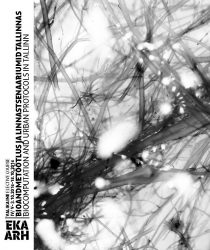
Find the booklet here.
The course aims to provide students with a material and operational framework to deal with change and transformation, the two defining qualities of urban ecology. In the age of unprecedented interaction between the natural and the artificial realms, we are confronted with the necessity to develop instruments of transformation equipped with an embedded capacity of constant adaptation and self-evaluation. As nature is becoming more and more hybridized with embedded artificiality, the ethical paradigm of natural conservation is progressively losing its value and needs to be replaced with more adaptive mechanisms of management and direct evaluation of the effects of human transformation of natural ecosystems. The course will provide a material and operational framework to deal with change and transformation, the two defining qualities of urban ecology. Students will structure their project through two main lenses: on the one hand, they will consider how urban territories can be described as a set of material practice and, on the other hand, they will design bioprototypes that can be implemented locally. We will look at how a local material process (micro), for example, water purification via biofilm or bio cementation could generate larger urban landscapes (macro).
Tutors: Claudia Pasquero, Alice Buoli, Piibe Piirma
Editor: Mae Köömnemägi
ISBN 978-9949-594-51-1
ISBN 978-9949-594-52-8 (pdf)
ISSN 2461-2359
